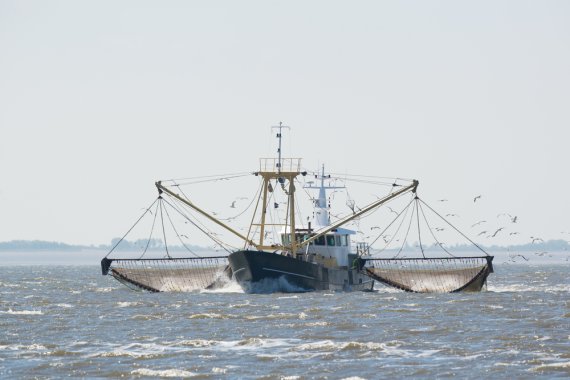It is certainly a good idea, according to Tammo Bult, director of Wageningen Marine Research. ‘But it doesn’t create solutions; the sector will have to come up with their own.’
What type of alternatives should we be thinking of?
‘That is difficult to say. In the short term, the fishermen will have to return to bottom trawling, using chains. At the moment, it is still a viable option, but that will become more complicated if the oil prices rise again, or if the fish prices dwindle, or if the fishing allocations are decreased.’
‘In hindsight, it would have been better to involve other countries in the discussions at an earlier stage.
Tammo Bult, Director Wageningen Marine Research
Will 15 million get anything done?
‘Currently, the primary issues of the sector are the landing obligation, the pending Brexit, a possible ban on pulse fishing and wind farms. That is a lot to cope with at once, but something must be done with each of these. A transition is necessary in fisheries. Those 15 million euros will certainly help, but it won’t create any lasting solutions. The sector will have to come up with those themselves, and that is a significant challenge.’
What are the implications for the Dutch fisheries sector?
‘This obviously has economic and ecological consequences, but some social ones as well. Fisheries will not disappear, but I wonder whether the current companies will be able to make that switch. I also worry that companies will fall, which could result in a small group getting their hands on the fishing rights. That could mean that the pillars of the trawling fleet – the family-run companies – will perish. This would heavily affect the local fishers’ communities.’
Looking back on the situation, could the Netherlands have done something differently?
‘In hindsight, it would have been better to involve other countries in the discussions at an earlier stage. We have been researching pulse trawling for a very long time, and it all gained additional momentum in the last five years. In the early days, the fisheries sector was not very keen on it. We discussed the matter for years before we finally found some support in the Netherlands. Within the sector and from the NGOs. When that finally happened, the discussion in the Netherlands started feeling more pleasant. I believe that to be the reason that the Netherlands underestimated the European discussion: all lights were already green on the Dutch local market. But when innovating, one will eventually encounter their neighbours, fellow fishermen. For example, Dutch fisherman can now use light pulse trawlers in areas where they couldn’t go before, because the chains of their bottom trawlers would get stuck. Near the English shore, they catch more sole at lower costs. It is only logical that others will resist this, which they then present as a discussion on the ecological consequences. If one does not organise that discussion at an early stage, this kind of issues will eventually come up. Several international dialogues were organised at a later point, but that was only after the permits were handed out and happened relatively recently if we look at how long we’ve been working on this in the Netherlands. That could have been done better.’

 Photo: Shutterstock
Photo: Shutterstock